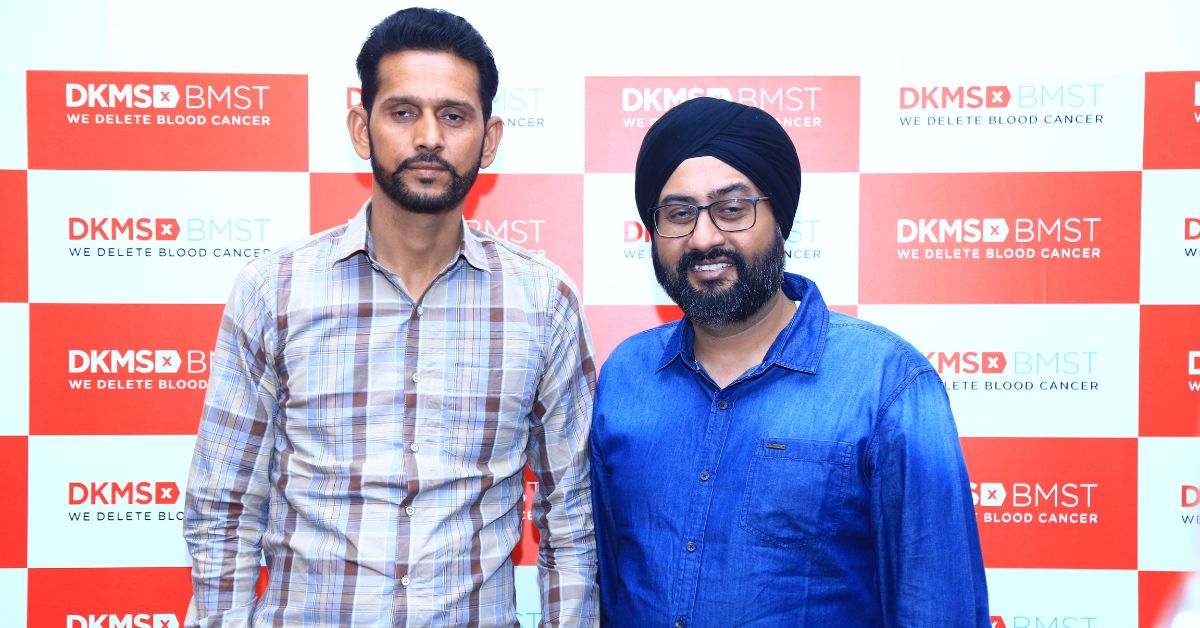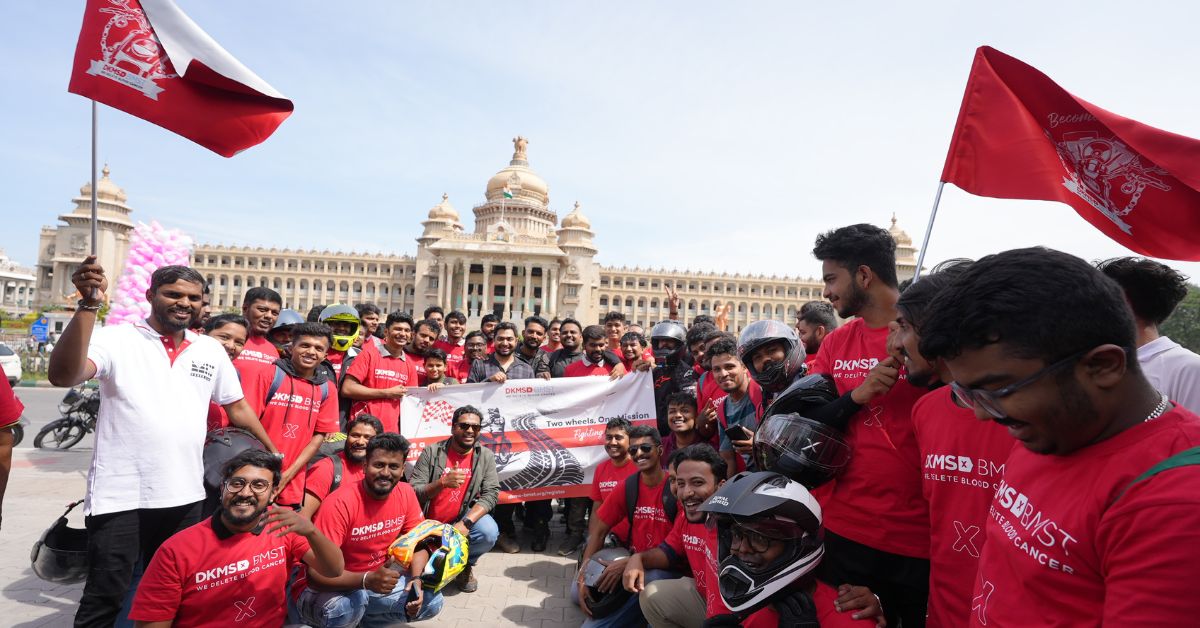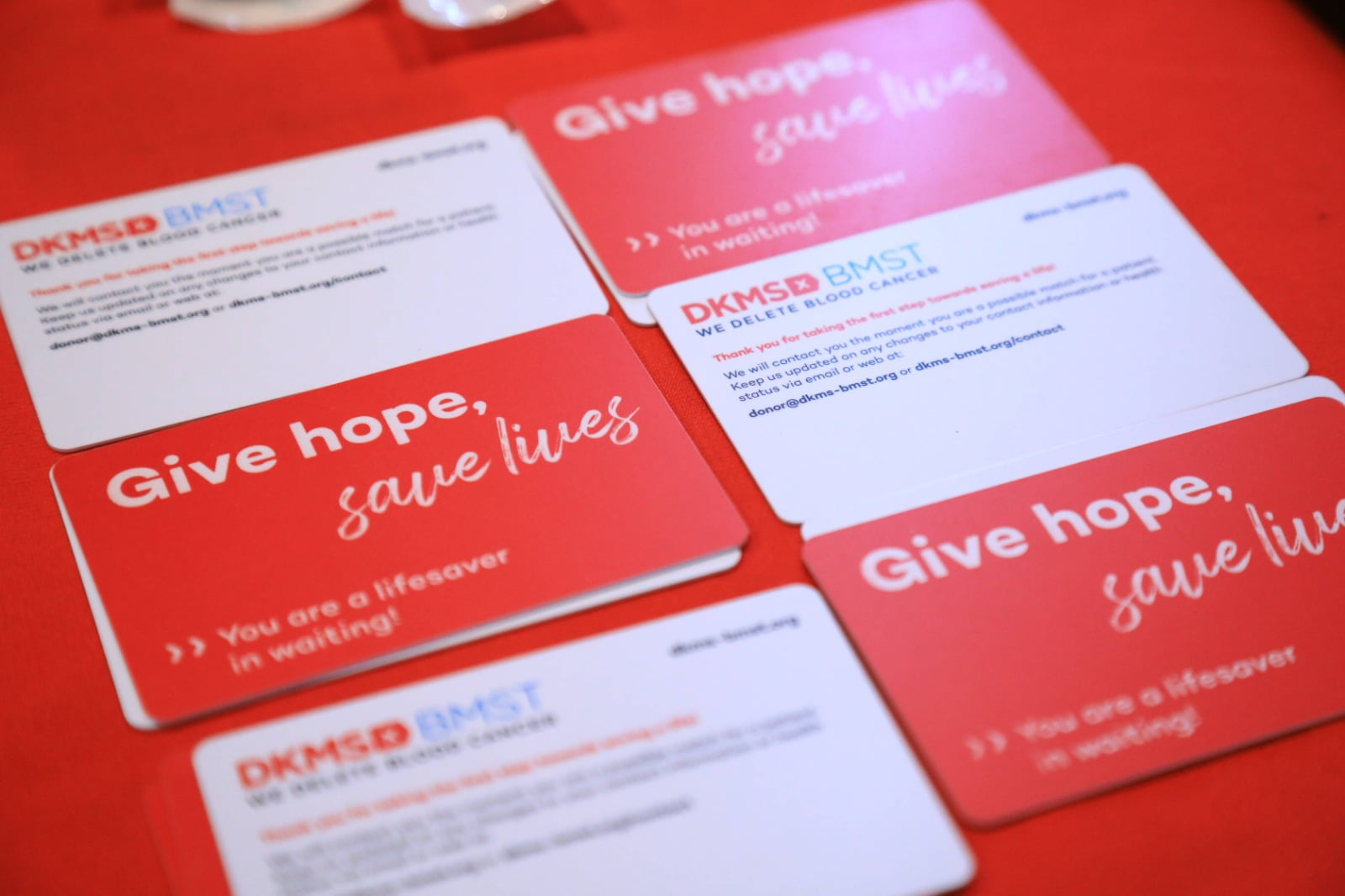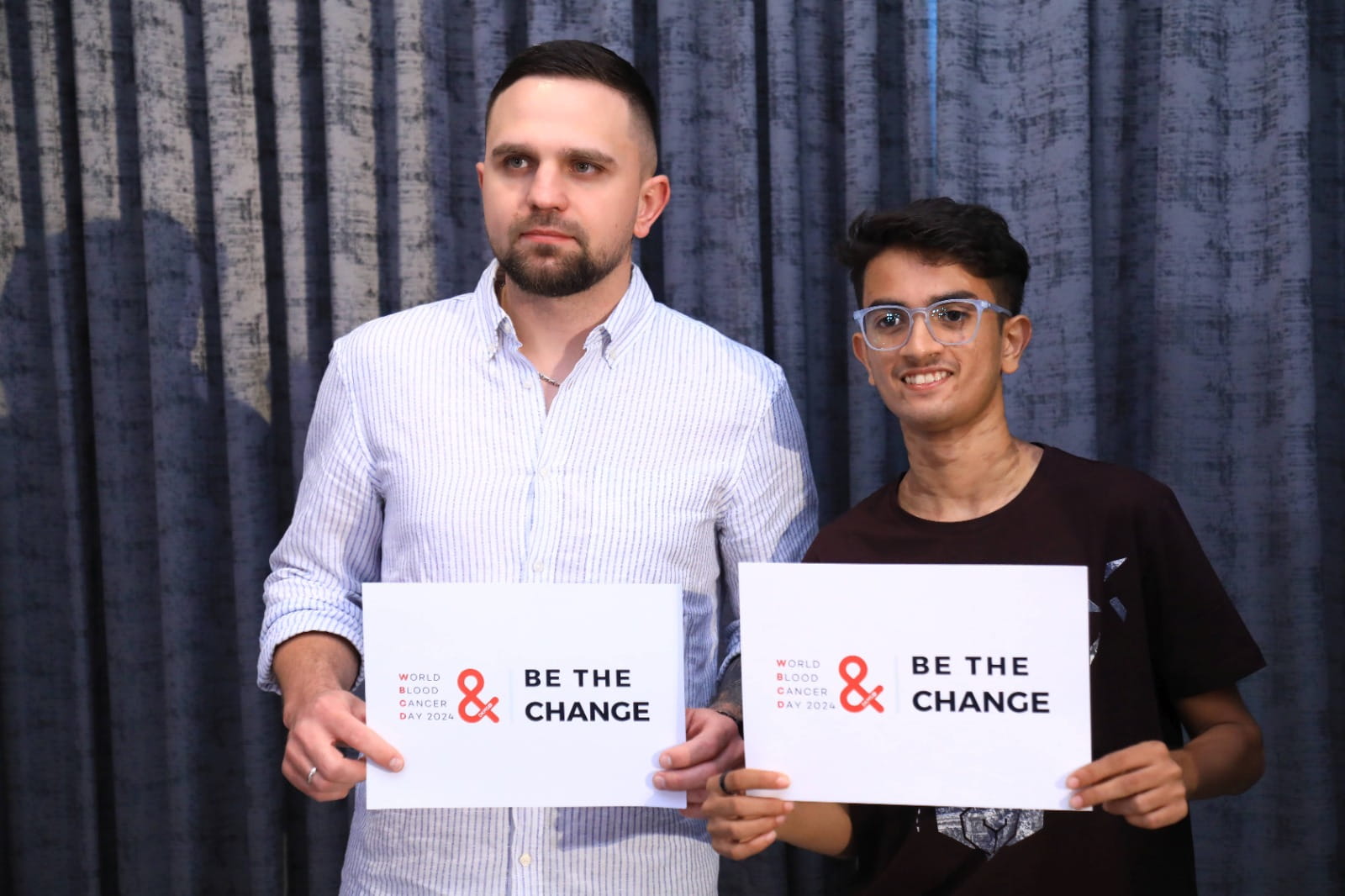This article is in partnership with DKMS BMST Foundation India
“Being a stem cell donor has given me a sense of great pride. It’s a profound reminder of the power of compassion and the interconnectedness of lives,” says Mandeep Mann, a blood stem cell donor.
Mandeep Singh, a farmer from Punjab was diagnosed with Chronic Myeloid Leukaemia (a type of blood cancer) in 2009. He struggled with regular hospital visits, medications, chemotherapy and blood transfusions for over 13 years. When the treatment didn’t yield the desired results, doctors told Mandeep that he would need a stem cell transplant.
Since there was no matching donor in his family, the 36-year-old had an excruciating three-year wait before an unrelated matching donor was identified and he underwent the stem cell transplant in January 2020.
In a twist of fate, the ‘one in a million’ donor not only shared the same genetic makeup but also the same name — Mandeep! A 40-year-old techie from Bengaluru, he knew what his namesake was going through, as his wife is a cancer patient. He realised the importance of donating stem cells, which he did through the DKMS BMST Foundation India.

The non-profit organisation is dedicated to the fight against blood cancer and other blood disorders, such as thalassemia and aplastic anaemia. It helps blood cancer and blood disorder patients nationwide by raising awareness about blood stem cell transplantation and registering potential blood stem cell donors.
When the two Mandeeps met, there wasn’t a dry eye in the room; gratitude was all around. “This man gave me a new lease of life. I am cured. No more medicines,” said Mandeep Singh.
DKMS BMST Foundation India has helped hundreds of people, like Mandeep, who were waiting for a matching stem cell donor to get a new lease on life.
Why India needs more stem cell donors
The global registry DKMS was founded by Peter Harf after he struggled to find a matching donor for his wife, Mechtild Harf, who was battling leukaemia. She was told that the only cure was a bone marrow transplant. Unable to find matching donors in the family, Peter Harf founded DKMS with his wife’s transplant physician Dr Gerhard Ehninger in 1991. At the time, there were only 3,000 registered stem cell donors in Germany. Despite registering 65,000 more donors in the first year, Mechtild could not get a matching donor and passed away.
Keeping his promise to his wife, Peter dedicated his life to registering donors across the world, to ensure that no patient died due to the unavailability of a matching donor. Today, DKMS has provided over 1,20,000 blood cancer patients a second chance at life.

Continuing Peter’s mission, DKMS-BMST — a joint venture between DKMS and BMST (Bangalore Medical Services Trust) was started to help Indians find potential donors in India.
The Globocan 2022 report from the Global Cancer Observatory found that more than 1,15,000 new cases of blood cancer were diagnosed in 2022 in India. In the same year, more than 77,000 Indians died because of blood cancer.
Blood stem cell donation serves as a vital lifeline for patients battling blood cancers and other blood disorders, such as sickle cell disease, aplastic anaemia, and thalassemia. These conditions impair the body’s ability to generate healthy blood cells, leading to severe health complications. A stem cell transplant offers a solution by replacing the diseased bone marrow with healthy stem cells, allowing the body to resume normal blood cell production and significantly improving the patient’s chances of recovery.
There are thousands of patients who need a blood stem cell transplant to get a second chance at life. However, India faces a significant shortage of available stem cell donors for stem cell transplants. This underscores the need for more stem cell donors as a simple act of donation can save a life.
Patrick Paul, chief executive officer, DKMS BMST Foundation India, says that they came to India to help the patients here. “It’s difficult to find matching donors for Indians from abroad. We needed donors with Indian genetic traits, which is why we began our operation in the country. We’ve registered 1.5 lakh donors in the country so far. We need at least 10 to 20 lakh to help the patients in the country today,” he says.
He explains that their mission is to give as many patients (with blood cancer and blood disorders) as possible a second chance at life. India has a very low number of registered donors compared to the vast population. “There are over 1.3 billion people in India, but only around 0.09 percent are registered as potential stem cell donors,” he adds.
Other than raising awareness about blood cancer and helping patients by registering donors DKMS-BMST helps underprivileged patients access stem cell transplant.

Since the costs of such transplantations are very prohibitive, the foundation also provides financial assistance to patients who can’t afford the treatment.
It also runs a programme for thalassemia patients — an inherited blood disorder where the body doesn’t produce enough haemoglobin. Every year, more than 10,000 new cases of thalassemia are diagnosed. “Thalassemia patients have to go through blood transfusions their entire life. This can be avoided with a stem cell transplant. The best outcomes are noticed when this is done between the ages of zero to seven,” adds Paul.
The first step to match donors and patients for stem cell transplants is HLA typing. The foundation does this for free for thalassemia patients and their families in India. Paul says that they have done HLA typing for 10,000 thalassemia patients in India so far.
They are working with many transplant centres across the country that have access to their donor database registry, including donors from the WMDA (World Marrow Donor Association). “If a transplant centre has a patient and knows their HLA profile, they can look for potential matches on our database. They can search for donors worldwide. We are hoping for our donor pool to increase to help more patients in need,” he adds.
How to become a donor?
The main challenge, and the foundation’s primary focus, is increasing donor registrations. Only 25 to 30 percent of patients find matching donors within their family, leaving 70 percent reliant on unrelated donors accessible through stem cell registries. Ethnic matching significantly boosts Indian patients’ chances.
“Having a large donor registry comprising people of Indian origin will ensure that more people with blood cancer and blood disorders, such as thalassemia and aplastic anaemia, can benefit from this treatment modality. If a well-matched healthy donor is available to the patient, the transplant outcome is very encouraging. The success rates can differ from case to case due to patient and disease characteristics variations, but if done at the right time, 60 to 70 percent of patients can be completely cured. In fact, a year after transplant, many patients can lead near normal lives,” shares Dr Sunil Bhat, director and clinical lead, paediatric haematology, oncology, and blood and marrow transplantation, Narayana Health Network Hospitals.

Any healthy Indian adult between 18 and 55 can register as a potential stem cell donor. All you need to do is visit the website and click on register. You will fill in your basic details and share your address, through which you will receive a swab kit at home. “Swab your cheek and return the kit following the instructions on the envelope. The swabs will then be analysed in our lab to determine your HLA (tissue) characteristics — this is how we match donors and patients,” states the website.
However, this is only the first step. Donors must be committed, emphasises Paul. If you are matched with a patient and you get a request to donate, it’s important for the donors to donate and help, he adds. “Most of the registered donors internationally are Caucasians, who generally don’t match Indian genes. There are a lot of leukaemia patients in India who struggle to find donors with an Indian ethnicity,” says Paul.
As DKMS works towards registering more donors, you could be one too. Register here.
Edited by Pranita Bhat
No comments:
Post a Comment